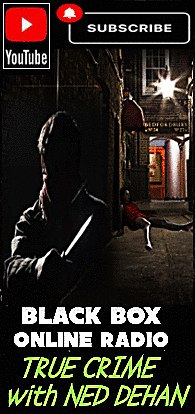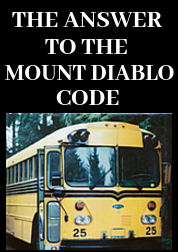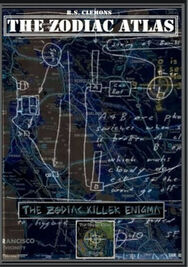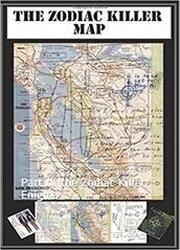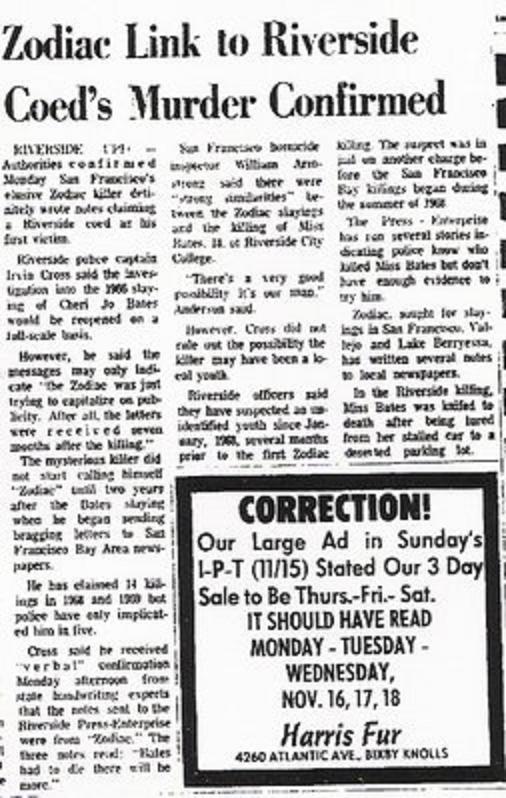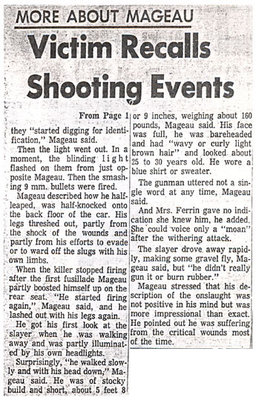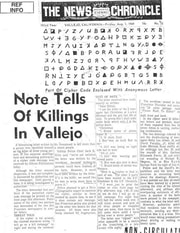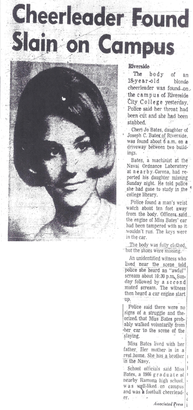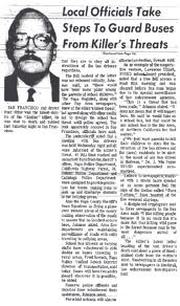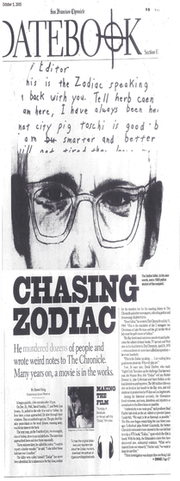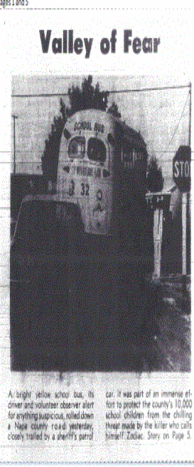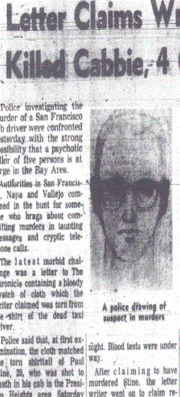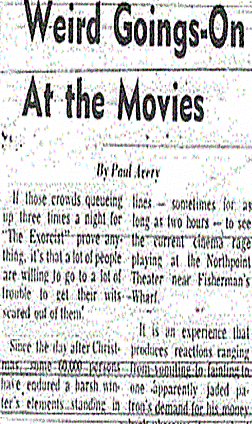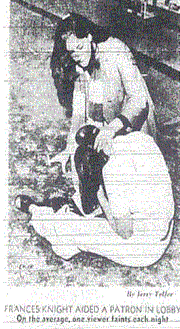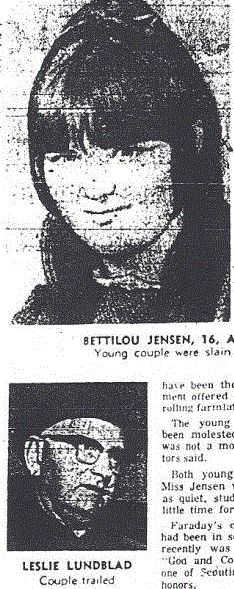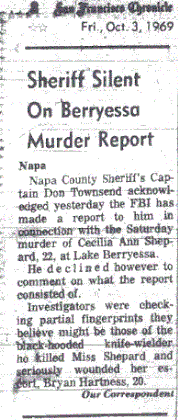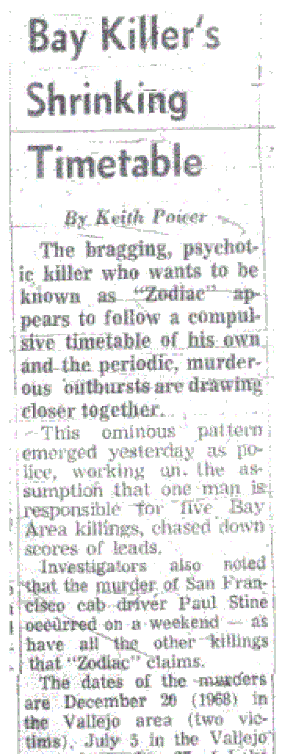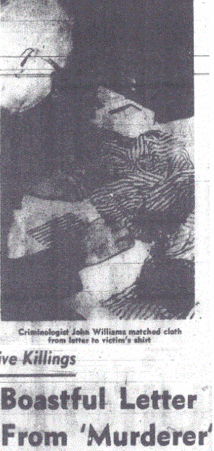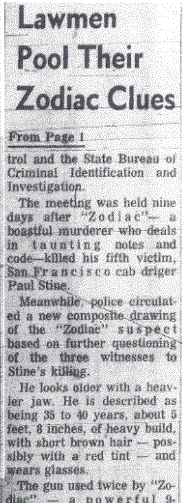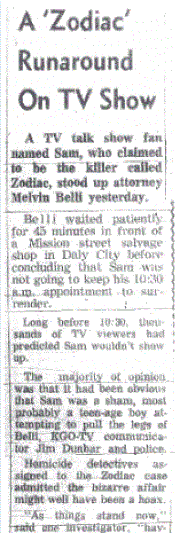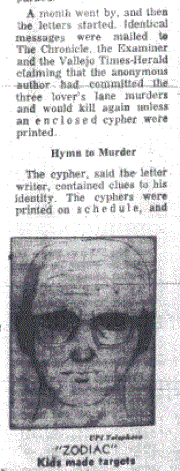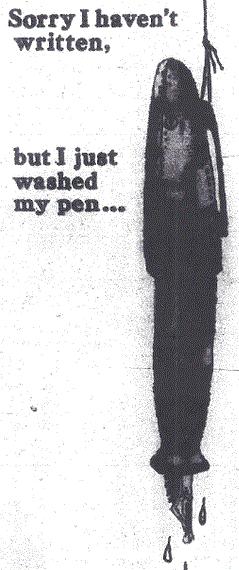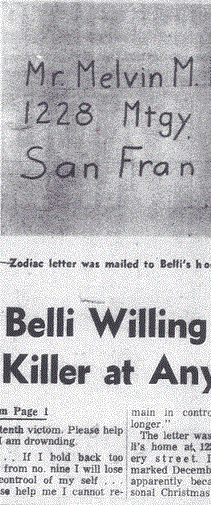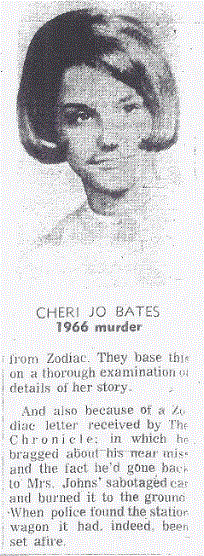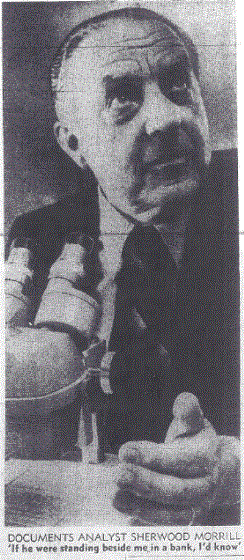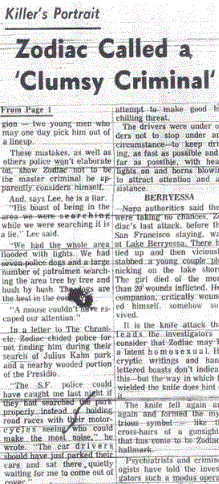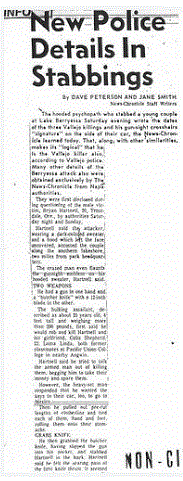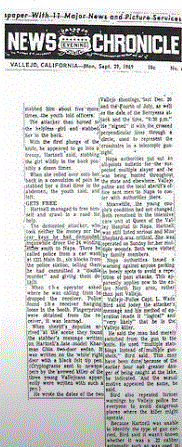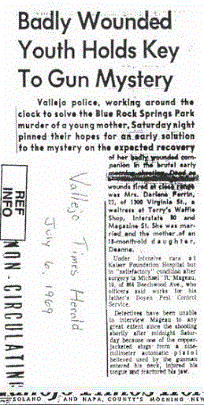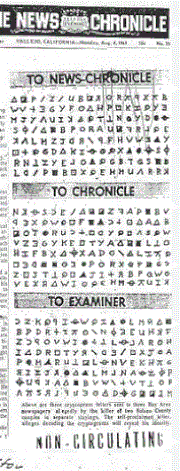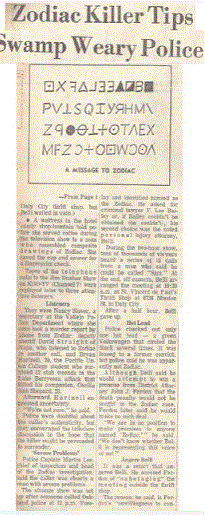 Cecelia Shepard
Cecelia Shepard If we take a look at the October 27th 1970 Halloween card and compare it to his confirmed attacks, only one stands out. On September 27th 1969, Cecelia Shepard and Bryan Hartnell were relaxing by the shores of Lake Berryessa when a man spotted by Cecelia ducked behind a tree to don an executioner's mask and waistline bib. This theatrical entrance in the form of Ko-Ko the Lord High Executioner has long been suggested as an influence on the Zodiac's actions and writings. Here is an extract from the San Francisco Chronicle on October 12th 1970, just 15 days prior to the mailing of the Halloween card: "It was immediately apparent that Zodiac had plagiarized several stanzas from an aria in the Gilbert and Sullivan operetta 'The Mikado'. It is the entrance aria of Ko-Ko, the Lord High Executioner. A quiet search of onetime Ko-Ko's has turned up none that could be Zodiac. Obvious differences in physical description and handwriting comparisons have cleared all Ko-Ko's tracked down since the arrival of the July 27 letters".
The Halloween card depicted an eye peering from the knothole of a tree, accompanied by the words "peek-a-boo you are doomed", possibly implying the impending threat of the Zodiac Killer hiding behind the tree at Lake Berryessa and his ultimate arrival bedecked in an executioner's outfit. If you look up the definition of peek-a-boo in Wikipedia, it quotes Peekaboo (also spelled peek-a-boo) as a form of play primarily played with an infant. To play, one player hides their face, pops back into the view of the other, and says Peekaboo!, sometimes followed by I see you! There are many variations: for example, where trees are involved, "Hiding behind that tree!" is sometimes added.
However, Peek-A-Boo was also a character in another version of The Mikado at around the same time as the Gilbert and Sullivan operetta. In 1888, Jack the Ripper terrorized the Whitechapel district of London. In the same year of somewhat less significance Ed J. Smith wrote a stage parody called The Capitalist; or, The City of Fort Worth. Designed to encourage capital investment in Fort Worth, Texas, and underwritten by local banks and railroad lines, the two act piece features characters named Yankee-Doo, Kokonut, By-Gum and Peek-A-Boo. Here is an image depicting this reference.
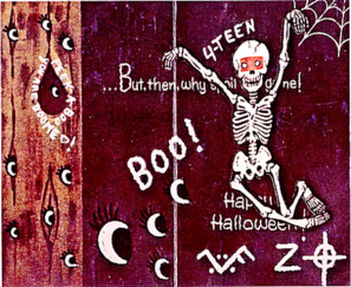 The Halloween card
The Halloween card "The earliest record of this rhyme is in a manuscript of around 1805, which contains only the first verse. There are references to a children's game called "bo-peep", from the 16th century, including one in Shakespeare's King Lear (Act I Scene iv), for which "bo-peep" is thought to refer to the children's game of peek-a-boo, but no evidence that the rhyme existed earlier than the 18th century. The additional verses are first recorded in the earliest printed version in a version of Gammer Gurton's Garland or The Nursery Parnassus in 1810. Wikipedia.
Peep-bo was one of the three little maids from The Mikado: "Three little maids from school are we, pert as a school-girl well can be, filled to the brim with girlish glee, three little maids from school". Three young girls from Pacific Union College would feature in the Zodiac story of Lake Berryessa that day, when describing a suspicious individual roaming the hillside bordering the lake - later providing a sketch of the individual. Little Bo-Peep was a shepherdess, so its significance to the name of Cecelia Shepard could not be ignored, although likely accidental. "She heaved a sigh and wiped her eye, and over the hillocks went rambling, and tried what she could, as a shepherdess should, to tack each again to its lambkin".
The Riverside murder of Cheri Jo Bates on October 30th 1966 and the subsequent Confession letter held an odd precursor to the events of Lake Berryessa, when it stated "Miss Bates was stupid. She went to the slaughter like a lamb", along with the widely referenced "She squirmed and shook as I choked her, and her lips twitched" connection to the Little List letter.
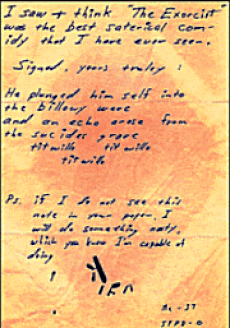 Click to enlarge
Click to enlarge "Taken from the county jail
By a set of curious chances;
Liberated then on bail,
On my own recognizances;
Wafted by a favouring gale
As one sometimes is in trances,
To a height that few can scale."
Behold the Lord High Executioner Youtube
The Mikado/Act I/Part V
The Lord High Executioner was to return, ridiculin the 1973 film, The Exorcist, yet curiously comparing it to Gilbert and Sullivan's satirical operatic comedy, The Mikado, calling it "the best satirical comedy that I have ever seen". He then signed his name using the verse of Tit-Willow by Ko-Ko: "He plunged himself into the billowy wave and an echo arose from the suicides grave, titwillo, titwillo, titwillo". The whole letter appeared to be announcing the return of the Lord High Executioner after nearly three years. Here is the Exorcist letter broken down into its constituent parts to reveal its likely meaning.
"I saw and think "The Exorcist" was the best satirical comedy that I have ever seen, even better than The Mikado. Signed, yours truley: The Lord High Executioner. If I do not see this note in your paper, I will do something nasty, which you know I'm capable of doing- To Kill". Kevin Robert Brooks came up with possibly the best interpretation of the Japanese/Asian symbols at the foot of the letter, befitting of Ko-Ko the Lord High Executioner. The "This is the Zodiac speaking" introduction was apparent by its absence, as well as the Zodiac crosshairs - but the Lord High Executioner was alive and well, and still making threats.
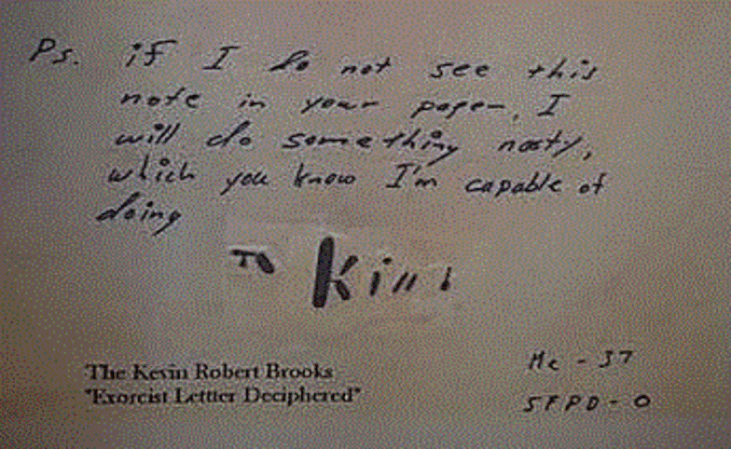




 RSS Feed
RSS Feed
